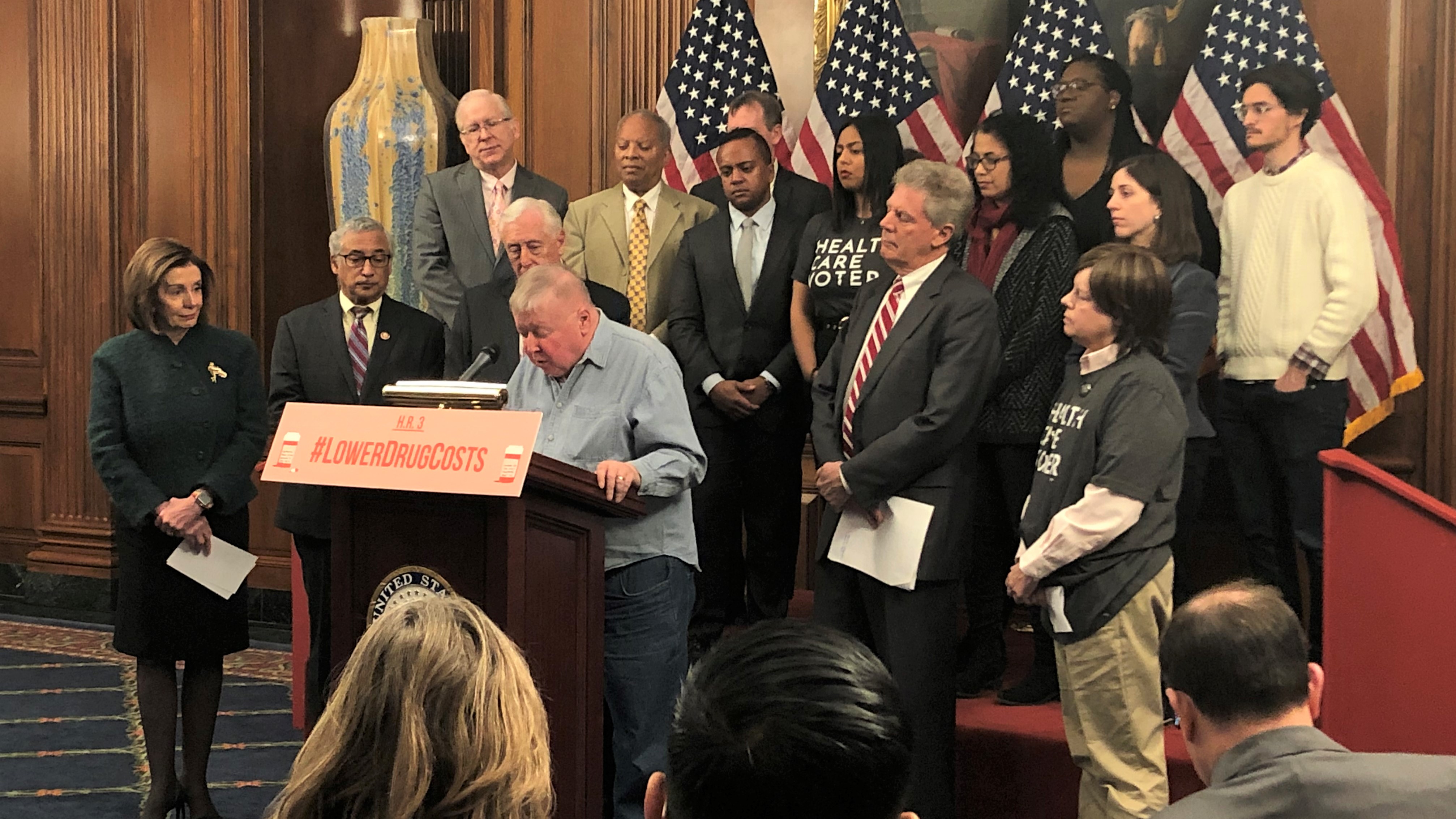AFSCME applauds the House of Representatives for passing the Elijah E. Cummings Lower Prescription Drug Costs Now Act, also known as H.R. 3, and urges the Senate to do the same.
The House voted Thursday 230-192 to approve the bill, which would allow the federal government to negotiate prescription drug prices, impose penalties on companies that refuse to negotiate, stop unjustified price hikes for existing medications and reinvest the savings back into Medicare, among other things.
“By passing this landmark legislation, House legislators are keeping their promise to hold drug corporations accountable and lower prescription drug prices for working people and retirees,” AFSCME President Lee Saunders said in a statement. “In one of the wealthiest countries on earth, no one should be skipping dosages or not taking needed medication because drugs are priced too high.”
At a press conference this week, AFSCME retiree Jim Riordan of Illinois praised the proposal, which he said would change his family’s life were it to become law.
“Passing H.R. 3 is important to me and many other seniors,” said the 71-year-old, who is a member of the Illinois Alliance for Retired Americans and AFSCME Retirees.
Riordan, who worked as a medical technologist for 18 years at a Cook County, Illinois, hospital, takes Xolair to treat his asthma. But the cost of the drug – $4800 out of pocket per month – means he has gone months at a time without taking the full dosage.
“I tried injecting only one dosage per month, and now I take two, but not taking my full dosage is seriously affecting my health,” he told reporters.
Yet Riordan is lucky compared to others – Medicare, of which he is a beneficiary, picks up 80% of the drug’s cost, which is $24,000 per month.
H.R. 3 would cap out-of-pocket expenses for Medicare beneficiaries at $2,000 per year, meaning Riordan could take the full dosage of the medication at a savings of tens of thousands of dollars annually.
“If the Lower Drug Costs Now Act became law, I could literally breathe a sigh of relief,” Riordan said.
If signed into law, H.R. 3 would:
- Provide the authority, mandate and tool for the U.S. Secretary of Health and Human Services to negotiate lower drug prices for Medicare beneficiaries;
- Reinvest the savings from lower drug costs to reduce out-of-pocket costs and close coverage gaps for Medicare beneficiaries;
- Invest critical funding into innovative treatments and cures, as well as into the fight against the opioid crisis;
- Add new dental, vision and hearing benefits to Medicare Part B.
The Senate must pass this bill.
“Every day that Senate leader Mitch McConnell refuses to take action, Americans will continue to suffer,” Saunders said.
